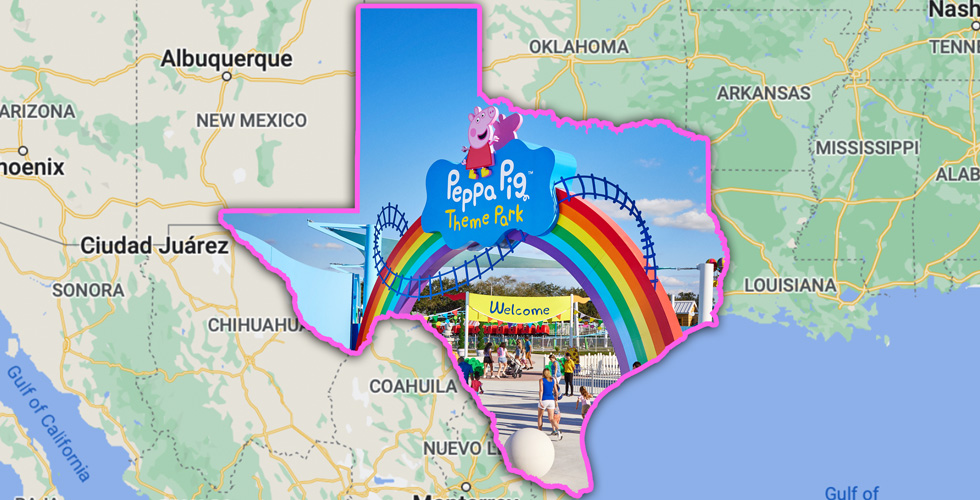Amazon And Its Unions: A Quebec Case Study On Warehouse Closures

Table of Contents
The Rise of Unionization Efforts in Quebec Amazon Warehouses
The burgeoning unionization movement within Quebec's Amazon warehouses didn't emerge overnight. It represents a growing dissatisfaction with working conditions and a desire for better employee representation. The timeline of these attempts reveals a pattern of increasing worker activism:
-
Early Attempts (2020-2021): Initial attempts at unionization faced significant challenges, often encountering resistance from management and lacking widespread worker support. These early efforts, while unsuccessful, laid the groundwork for future campaigns. Internal communication among workers regarding working conditions and wages began to coalesce.
-
The Syndicat des travailleurs et travailleuses de la logistique (STTL): This union played a pivotal role, spearheading several significant unionization drives in different Quebec Amazon facilities. Their strategic approach involved focusing on specific grievances and building a strong base of support amongst warehouse employees.
-
Key Demands: The unions' primary demands consistently centered on several key issues:
- Substantially improved wages: Addressing the perceived wage disparity compared to other sectors and similar jobs.
- Enhanced working conditions: Focusing on issues such as workplace safety, ergonomic improvements, and reduction of excessive pressure to meet demanding quotas.
- Increased job security: Seeking better protections against arbitrary dismissals and ensuring fair treatment in the workplace. This included concerns about unpredictable scheduling and lack of benefits.
-
Negotiation Challenges: The negotiation process proved arduous, often characterized by extended periods of stalemate and disputes over the scope of collective bargaining.
Amazon's Response to Unionization Efforts
Amazon's response to unionization efforts in Quebec has been a subject of much scrutiny. While the company officially maintains a neutral stance on unionization, its actions have been criticized by some as anti-union:
-
Official Statements: Amazon's public statements generally emphasize its commitment to providing competitive wages and benefits. However, these statements have often been met with skepticism by labor activists and critics.
-
Alleged Anti-Union Tactics: Several allegations of anti-union tactics have surfaced, including claims of:
- Captive audience meetings: Where employees are required to attend meetings promoting the company's perspective on unionization.
- Intimidation of pro-union employees: Allegations of subtle and overt pressure to discourage union activity. (Specific instances would require citing verifiable sources, if available.)
- Strategic hiring and firing: Allegations that the company manipulated staffing to undermine union support, though these are often difficult to prove.
-
Justification for Closures: Amazon has cited various reasons for the warehouse closures, including operational inefficiencies, shifting market demands, and even the broader economic climate. However, the timing of the closures in relation to unionization efforts has led to speculation that they were strategically motivated.
The Economic Impact of Warehouse Closures on Quebec
The economic fallout from the Amazon warehouse closures in Quebec is substantial and far-reaching:
-
Job Losses: The precise number of jobs lost varies depending on the source and the facilities closed. However, even conservative estimates indicate a significant loss of employment in the affected regions. (Cite specific sources with employment figures here).
-
Local Economic Impact: The closures have had a ripple effect on the local economies of the affected communities. Local businesses that relied on Amazon employees for their clientele have experienced reduced revenue. Furthermore, the closure means a loss of tax revenue for the municipality and province.
-
Long-Term Effects: The long-term impact on the Quebec logistics sector remains uncertain. The closures raise concerns about the potential displacement of workers and the overall stability of the sector. There are also concerns about the impact on infrastructure in areas that previously benefited from the presence of Amazon facilities.
The Political and Social Implications of the Closures
The Amazon warehouse closures in Quebec have triggered significant political and social repercussions:
-
Government Response: The Quebec government has responded with a mix of concern and cautious action. This has included calls for greater worker protections, potential investigations into the circumstances surrounding the closures, and discussions about creating a more supportive economic climate for local businesses. (Cite specific government statements and actions here).
-
Public Opinion and Media Coverage: Public opinion has largely been sympathetic to the affected workers, with considerable media attention focusing on the potential unfair labor practices and the broader implications for worker rights. (Cite relevant polls, media reports, and social media trends here).
-
Implications for Labor Rights: The closures have intensified the debate surrounding labor rights and the balance of power between multinational corporations and organized labor within the province. It has spurred a renewed call for stronger worker protections and increased scrutiny of business practices that may negatively impact employees.
Conclusion
This case study has examined the complex relationship between Amazon, its unionization efforts, and the recent Amazon warehouse closures in Quebec. The analysis reveals potential connections between union activity and Amazon's operational decisions, highlighting the significant economic and social consequences for workers and the broader Quebec economy. The situation underscores the ongoing debate about labor rights, worker protections, and the power dynamics between multinational corporations and organized labor.
Call to Action: Understanding the implications of Amazon warehouse closures in Quebec is crucial for shaping future labor policies and protecting the rights of workers in the logistics sector. Further research and public discussion are needed to address the challenges posed by this case and to ensure a fair and equitable working environment for all. We encourage you to continue exploring the topic of Amazon unionization and its impact on worker's rights, particularly in the context of Amazon warehouse closures in Quebec.

Featured Posts
-
 Early Exit For Aruna At The Wtt Chennai Open
May 21, 2025
Early Exit For Aruna At The Wtt Chennai Open
May 21, 2025 -
 The Trump Presidency And The Surge In American Applications For European Citizenship
May 21, 2025
The Trump Presidency And The Surge In American Applications For European Citizenship
May 21, 2025 -
 Switzerlands Strong Response To Chinese Military Actions
May 21, 2025
Switzerlands Strong Response To Chinese Military Actions
May 21, 2025 -
 Peppa Pig Theme Park Your Guide To The Texas Location
May 21, 2025
Peppa Pig Theme Park Your Guide To The Texas Location
May 21, 2025 -
 Solve The Nyt Mini Crossword April 8 2025 Tuesday Clues And Answers
May 21, 2025
Solve The Nyt Mini Crossword April 8 2025 Tuesday Clues And Answers
May 21, 2025
Latest Posts
-
 Resilience And Mental Wellness From Setback To Success
May 21, 2025
Resilience And Mental Wellness From Setback To Success
May 21, 2025 -
 A Hell Of A Run Examining The Ftv Live Report
May 21, 2025
A Hell Of A Run Examining The Ftv Live Report
May 21, 2025 -
 Ftv Lives A Hell Of A Run A Deep Dive Into The Controversy
May 21, 2025
Ftv Lives A Hell Of A Run A Deep Dive Into The Controversy
May 21, 2025 -
 Increased Storm Chance Overnight Severe Weather Alert For Monday
May 21, 2025
Increased Storm Chance Overnight Severe Weather Alert For Monday
May 21, 2025 -
 Enjoy Mild Temperatures And A Low Chance Of Rain This Week
May 21, 2025
Enjoy Mild Temperatures And A Low Chance Of Rain This Week
May 21, 2025
